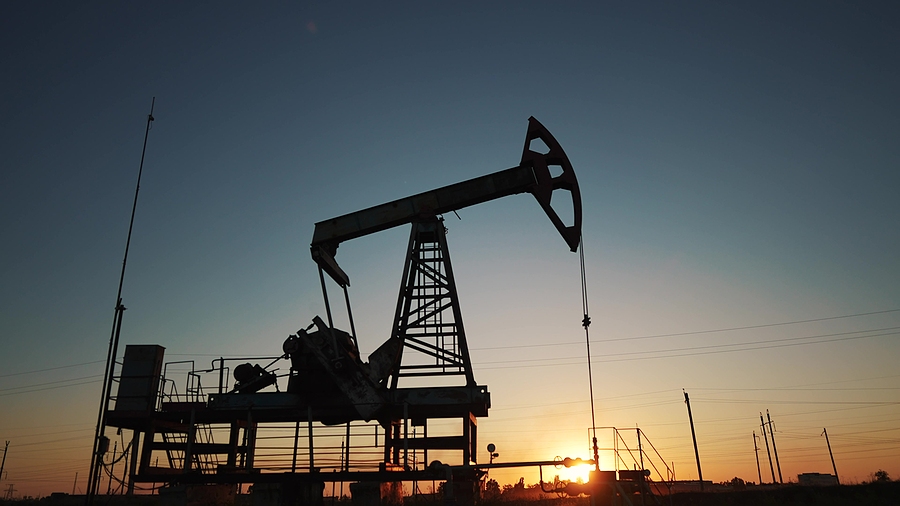News
How Fracking Affects Water Quality
Fracking – or hydraulic fracturing – is one of those topics that’s constantly in the news because of controversies surrounding its impact on the natural environment and our reliance on fossil fuels in the face of climate change, driving the need to start operating more sustainably, supported by renewable energy sources.
The technique itself involves drilling down into the earth to recover gas and oil from shale rock by using highly pressurised jets of water laced with sand and other such additives to shatter the rock and release the gas trapped inside.
One of the big issues that has emerged over the years as fracking has become more prevalent is that injecting this fluid at high pressure into rock has the potential to cause earth tremors and quakes.
For example, back in February industry regulator the Oil and Gas Authority ordered that the only two shale gas wells in the UK were to be sealed and plugged with concrete after test drilling was suspended because of tremors in 2019.
The organisation concluded that it was not possible to predict tremor size caused by fracking after an earthquake with a magnitude of 2.9 was recorded nearby in August 2019, according to the BBC.
Fracking is also problematic from an eco-friendly perspective because it uses a huge amount of water to shatter the rock and shale gas itself is a fossil fuel, which campaigners believe could prove to be a distraction from renewable energy investments.
Over the last few weeks, fracking has been hitting the headlines with increasing frequency because of government U-turns.
During Liz Truss’s 44 days as prime minister, she made moves to lift the ban on shale gas fracking, as well as announcing new North Sea oil and gas licensing rounds, despite warnings from the International Energy Agency that fresh activity would need to stop because of the climate crisis.
However, it has just been confirmed this week (October 26th) that new prime minister Rishi Sunak will continue to uphold the fracking ban, committing to the policy pledge that was set out in the 2019 manifesto.
The manifesto commitment itself reads: “We placed a moratorium on fracking in England with immediate effect. Having listened to local communities, we have ruled out changes to the planning system. We will not support fracking unless the science shows categorically that it can be done safely.”
How does fracking affect the environment?
As global reserves of conventional oil and gas sources have dwindled over the years, fracking has become an alternative option for fossil fuel extraction. While the practice is still very commonplace in the US, fracked fuels can be even more harmful to the planet than regular oil and gas, with extraction processes causing pollution and putting public health at risk… when there is very little to be gained from it in terms of energy security.
Firstly, fracking is very energy intensive as a process, using far more than conventional oil and gas, as well as using lots of water to shatter the rock. It’s also possible that fracked gas can leak into the atmosphere as a result of the process, increasing the environmental impact even more.
Analysis from chemicals charity CHEM Trust found that chemicals from fracking sites could potentially lead to significant pollution, with hazardous chemicals damaging sensitive ecosystems and killing wildlife, possibly putting a wide range of species like bats, dragonflies and butterflies at risk.
Key recommendations made in the report included full disclosure of all chemicals used in fracking, stronger EU regulation, effective monitoring and enforcement and more regulations to protect people and the environment when fracking sites are no longer in use.
More recent research, this time from the University of Rochester, found that public drinking water quality has, in fact, been compromised by fracking and shale gas development… and that drilling near public water sources leads to poorer birth outcomes, as well as more contaminants linked to fracking in public drinking water.
The research suggests that fracking chemicals, including volatile organic compounds, are now entering groundwater sources that feed into municipal water systems.
Furthermore, the contamination potential is greatest during pre-production when new wells are being established. Given that only 29 out of the 1,100 or so shale gas contaminants are regulated in drinking water, it’s possible that the true contamination level could be higher.
In addition, further studies have shown that shale gas development can be linked to reproductive health, higher risk of asthma exacerbation during childhood and elevated risk of heart attacks.
Lead researcher Elaine Hill said: “These findings indicate large social costs of water pollution generated by an emerging industry with little environmental regulation. Our research reveals that fracking increases regulated contaminants found in drinking water, but not enough to trigger regulatory violations.
“This adds to a growing body of research that supports the re-evaluation of existing drinking water policies and possibly the regulation of the shale gas industry.”
Of course, it’s not just pollution that needs to be taken into consideration where fracking is concerned… and the amount of water used during the process is also of great importance, given how urgent the water crisis is becoming as time goes on.
Studies from Duke University have found that the water footprint of the entire lifecycle of the fracking process ranged between 390,000 to 6.27 million gallons of water per well for shale gas, while for shale oil, it ranged from between 70,000 to two million gallons per well.
In the US, between 2005 and 2014, unconventional shale gas and oil extraction used 708 billion litres and 232 billion litres respectively. Meanwhile, annual water use rates from 2012 to 2014 were 116 billion litres per year for shale gas and 66 billion litres per year for oil.
Do you want to find out why water efficiency is important? Get in touch with the H2o Building Services team today to see how you could improve the water footprint of your business today.
